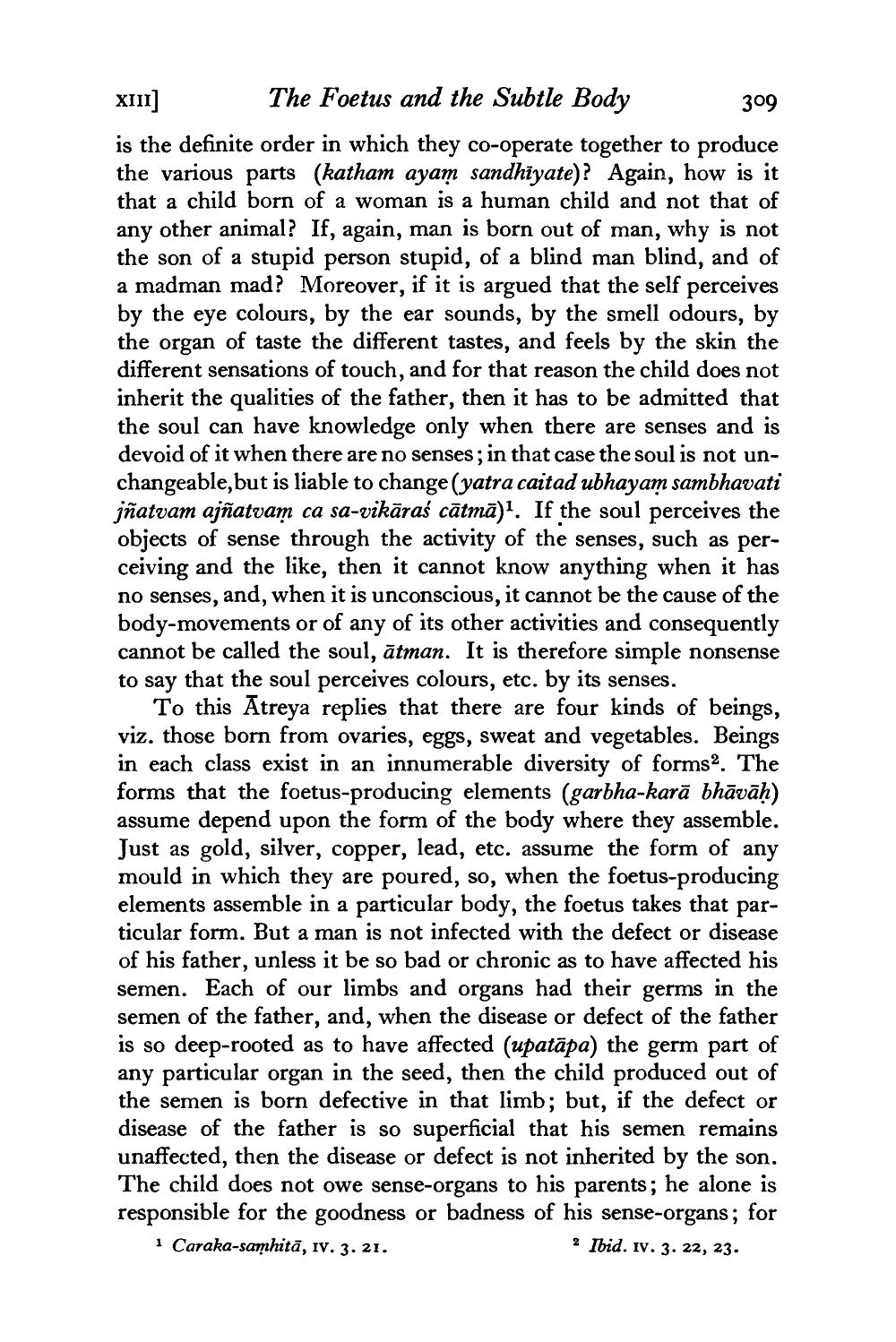________________
X11] The Foetus and the Subtle Body
309 is the definite order in which they co-operate together to produce the various parts (katham ayam sandhiyate)? Again, how is it that a child born of a woman is a human child and not that of any other animal? If, again, man is born out of man, why is not the son of a stupid person stupid, of a blind man blind, and of a madman mad? Moreover, if it is argued that the self perceives by the eye colours, by the ear sounds, by the smell odours, by the organ of taste the different tastes, and feels by the skin the different sensations of touch, and for that reason the child does not inherit the qualities of the father, then it has to be admitted that the soul can have knowledge only when there are senses and is devoid of it when there are no senses; in that case the soul is not unchangeable, but is liable to change (yatra caitad ubhayam sambhavati jñatvam ajñatvam ca sa-vikāraś cātmā)'. If the soul perceives the objects of sense through the activity of the senses, such as perceiving and the like, then it cannot know anything when it has no senses, and, when it is unconscious, it cannot be the cause of the body-movements or of any of its other activities and consequently cannot be called the soul, ātman. It is therefore simple nonsense to say that the soul perceives colours, etc. by its senses.
To this Atreya replies that there are four kinds of beings, viz. those born from ovaries, eggs, sweat and vegetables. Beings in each class exist in an innumerable diversity of forms. The forms that the foetus-producing elements (garbha-karā bhāvāḥ) assume depend upon the form of the body where they assemble. Just as gold, silver, copper, lead, etc. assume the form of any mould in which they are poured, so, when the foetus-producing elements assemble in a particular body, the foetus takes that particular form. But a man is not infected with the defect or disease of his father, unless it be so bad or chronic as to have affected his semen. Each of our limbs and organs had their germs in the semen of the father, and, when the disease or defect of the father is so deep-rooted as to have affected (upatāpa) the germ part of any particular organ in the seed, then the child produced out of the semen is born defective in that limb; but, if the defect or disease of the father is so superficial that his semen remains unaffected, then the disease or defect is not inherited by the son. The child does not owe sense-organs to his parents; he alone is responsible for the goodness or badness of his sense-organs; for i Caraka-samhitā, iv. 3. 21.
? Ibid. iv. 3. 22, 23.




